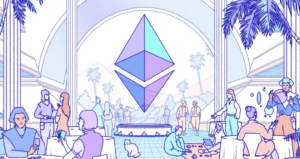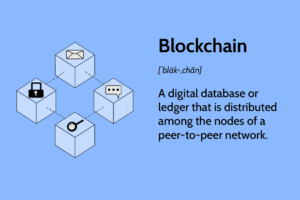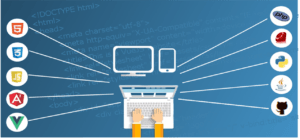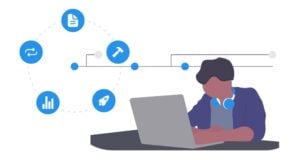Table of Contents
Computer Programmers vs. Software Engineers vs. Software Developers: What’s the Difference?
Excellent question that we’ve taken the liberty of pretending you’ve asked!
This definitely warrants a quick breakdown, and it’s such a relevant topic we’re actually putting together a really interesting piece on the rarely-discussed differences between Developers, Programmers and Engineers that will follow this article.
Both computer programming and software development are broad terms that entail creating code that instructs computers to perform various functions. While both computer programmers and software developers create instructions for computers that translate to user-benefitting functionality, development encompasses programming.
Software development involves much more than coding. Computer programming is a singular—albeit important—phase within it. Software developers’ work begins before and continues after programming in the pipeline of a given project. While computer programmers tackle the specific challenges related to building the logic and processes behind a software project, that project as a whole depends on phases like…
- Needs analysis
- Design & prototyping
- Project planning
- Coding
- Testing
- Deployment
- Maintenance
- Improvement & iteration
It’s the job of the software developer—which can be an individual, group or company—to carry out and/or oversee every aspect in the project’s lifecycle.
Software engineers also tackle programming challenges, but they do so using advanced computer science that isn’t in the tool belt of the average computer programmer.
While you may hear the terms used interchangeably, presenting oneself as a software developer or software engineer when you’re only prepared to perform the programming responsibilities of a job could lead to missed expectations.
What We’ll Cover
You’ll never guess. But! Worth noting is that beyond defining the different types of programmers out there, we’ll go over:
- A bit of background into their primary jobs, plus some examples of types of work
- The common programming languages associated with each
- (Find out more about the most in-demand ones right here)
- Related professionals with partially overlapping skillsets or job focus
- Other abilities key to a successful career in each field
What Are the Different Types of Programmers & Developers?
Depending on how you look at it, there are countless types of programmers, especially if you lump in the terms ‘developer’ and ‘engineer.’ That’s because programmers can be classified by a technological specialization like the programming languages they work in, or by the aspects of a project they focus on.
To sift through it all, we’ve highlighted 10 types of programmers whose roles are distinct from each other, and who make up the bulk of the boom in the market for software developers. Let’s dive in.
1: Front End Developer
If you think of a complete software solution as a “stack” of layers, the front end sits on top. It’s the first thing a user sees and often, the only thing they directly interact with. It encapsulates the user interface (UI) and much of the user experience (UX).
Front End Developers are responsible for creating the experience the user is intended to have through direct interaction. How are they greeted when the software is started? What kind of elements and controls should be presented? How will the software’s interface be organized and respond to user input so that it functions as intended.
These developers will spend significant time in the role of designer as well as writing code
What Are the skills needed to be a front-end Developer?
If you want to become a Front-End Developer, you’ll need expertise in common programming languages, as well as various platforms and frameworks like:
- HTML
- CSS
- JavaScript
- DOM Manipulation
- JSON
- AJAX
- Node.js
- MySQL
- React
- Java
You’ll also need strong problem-solving abilities, a design mentality, and the ability to visualize computer programs, mobile apps and websites as your clients (or their users) will eventually interact with them.
2: Back End Developer
In contrast, Back End Developers build and maintain everything that goes on behind the user-facing layer of an app or website. If you click a button on an app screen or webpage, the button itself is part of the user interface on the front end. But what the button actually does, is all back end work.
If it performs a calculation and returns the result, that math is programmed to run when the button is pressed. The math itself and the button’s function as the trigger for the calculation to be processed are both back end functions.
Back end web developers and computer programmers also build, integrate, customize and maintain a product’s invisible dependencies, such as APIs, server processes, and databases. For more complex or large-scale projects, Database Developers that specialize in building, tailoring and maintaining databases are integral. They may also play key roles in data analysis, so a project manager, business or entire team can learn from their product’s operations.
What are the requirements to become a Back End Developer?
If the more functionally-oriented qualities of back end development have your interest, you’ll need a firm grasp of these programming languages, systems and disciplines:
- Java
- Python
- SQL
- PHP
- .NET
- Ruby
- C
- Git
- Database management
- Developing APIs
- Testing tools
- Debugging
Understanding front end development is also key to being a capable back end developer, so you should also have a functional knowledge of HTML, CSS and JavaScript.
Excellent communication is critical as software developers and web developers have to work closely with specialized professionals at multiple phases of a project. Needless to say, an innate ability to solve problems is make-or-break for this role.
3: Full Stack Developer

Combine the above two halves of a stack into one comprehensive role, and you’re talking about a full stack developer. It’s the job of the full stack web developer to develop full websites, from user-facing design and interactive elements, all the way through to back end services.
Likewise, a full stack software developer is able to do the work of multiple specialized computer programmers and more. This includes designing UX and program logic, writing code for all phases of mobile applications or desktop programs, and running tests to find and resolve bugs.
The wide range of expertise commanded by these thoroughly skilled professionals makes them a highly sought-after resource. If you’re serious about pursuing a career as a web developer or in software, gaining the skills and experience to bill yourself as a full stack web or software developer is sure to set you on a lucrative career path.
What is required to become a full stack developer?
In addition to the skills, tools, and knowledge mentioned in the two prior sections, full stack developers should be well versed in the following:
- Angular JS
- Apache HTTP Server
- AWS
- Ember.js
- jQuery
- Laravel
- Microsoft SQL Server
- MySQL
- Nginx
- Node.js
- Polymer
- Ruby on Rails
- Vue.js
4: Web Developer
Web developers are in increasingly high demand as more of the world gains access to the internet and subsequently relies on it for everything from ride hailing and food delivery to basic education and healthcare.
In terms of career, web developer ranks 6th in US News’ list of best technology jobs, commanding a median salary of USD 77,200 per year.
Web developers are responsible for developing all phases of a website—often (but not always) including design.
What are the requirements to become a web developer?
In addition to the most basic web dev technology, HTML, CSS and JavaScript, you’ll need to be proficient in:
- Modern, popular content management systems (CMS) and development platforms, such as WordPress and Drupal
- PHP
- jQuery
- SQL
- How to build, integrate and maintain APIs
- How to manage databases
- Responsive design so your sites scale and function well on mobile devices
Additionally, knowing how to analyze data, do basic photo editing, and implement effective search engine optimization (SEO) practices will make you an even stronger candidate.
5: Mobile Developer

Mobile apps are more important as ever, and that’s not a trend that’s likely to reverse. Smartphones continue to make massive leaps in performance and are increasingly becoming the primary computing device for consumers of all income brackets worldwide.
In fact, the mobile space is so important that having a good mobile app can make or break a company. For a fresh, lean startup, a simple but functional mobile app can be a powerful, relatively quick and affordable first step into a lucrative market. On the other hand, large companies have everything to lose if their mobile offering isn’t up to par.
Facebook famously struggled adapting to mobile platforms, and suffered billion-dollar valuation losses as a result, while its users began an exodus to mobile-first experiences like Instagram. Fortunately for Facebook, money solved that problem.
Whether your goal is to create apps or responsive websites, these developers focus on the small screen, and have a mastery of both Android and iOS operating systems.
What are the requirements to become a mobile Developer?
Developing for mobile still relies on a solid foundation in some of the most common programming languages like JavaScript, Angular and Java, but you’ll also need:
- Objective-C
- Swift
- Kotlin
- React.js
- React Native
- Go (sometimes called Golang – we’re into it)
Perhaps more so than for other types of software, in mobile you need to have a strong command over quality UI design, and be extremely detail oriented. And if you’re looking, we’ve got a great guide to help you hire an app developer on our blog.
6: Game Programmer

Game development is exploding, thanks in part to the pandemic’s extensive lockdowns making virtual worlds the only ones most people had the freedom to explore. Since long before though, video games have served as enticing escapes from the stresses and limitations of the real world.
Today, video game production is an enormously significant industry—well surpassing Hollywood in annual gross sales. As new hardware exponentially outpaces its predecessors in consoles, PCs, and mobile devices, games have only become more immersive, realistic, expansive and enticing to play.
The sheer number of people involved in a team behind a modern open-world RPG is perhaps a good depiction of the depth of knowledge, coding, and technology that gets pulled together from various industries in order to create a great game.
Game programming isn’t actually a single discipline. Within the field there are:
- UI programmers
- Gameplay programmers
- AI programmers
- Game engine programmers
- Physics engine programmers
- Graphics engine programmers
- Network programmers
- Input programmers
- Audio programmers (also called sound programmers)
- And more
What are the requirements to become a game programmer?
If you want to become a game programmer, you have to master at least one of the trades above. To work for a game studio, you’ll likely need at least a bachelor’s degree, as well as a portfolio that shows off your experience and capabilities. As for programming languages, you’ll need the following:
- C++
- Java
- JavaScript
- C#
- HTML5
- Python
7: Database Developer
If you’re not familiar with databases, you’ll likely be surprised by just how much depends on them. Databases are, at their most basic, organization systems for storing and using data. Have a customer account on a website? Your account exists as a record within that company’s database.
Today, any form of centralized business tool, cloud application, or connected game relies on one or more databases to keep track of critical information, and serve it up as needed. The more complex and integrated with other services, the more important database technology becomes.
What are the requirements to become a database developer?
You’ll need to be well-versed in computer science, for one. While a degree isn’t necessarily required, the material you’ll learn as you earn one will be massively helpful in absorbing the wide breadth of knowledge this field depends on. Database developers also need a mastery of some key technologies and programming languages, such as:
- SQL and the modern database systems that use it, like
- MySQL
- Microsoft SQL Server
- Oracle
- IMB DB2
- Oracle
- C
- C++
- C#
- Java
- XML
- APEX
8: Analyst Programmer
The analyst programmer role is an interesting, engaging hybrid function at the intersection of business analyst and systems programmer. Analyst programmers are solutions-oriented data analysts and systems designers with sound understandings of business and the operations that companies rely on for success.
They’re able to analyze a company’s systems and create software-based solutions to improve business functions. They then typically work with teams on both the IT and operations sides to develop, implement and streamline use of those business systems.
What are the requirements to become an analyst programmer?
If you want to become an analyst programmer, you need to understand business processes and solutions design, to start. Your job relies on learning from users in real-world scenarios, so you need to be able to interview and discuss IT with them.
Since the job is about solving problems, analyst programmers need to be able to identify bugs and test code. Some common programming languages and technologies you’ll want to master include:
- Python
- SQL
- Java
- APEX
- HTTP
- Microsoft Azure
- Google Cloud Platform
- AWS
9: Sound Programmer
Also called audio programmers, these professionals write the code that gives apps and games their auditory appeal. Whether a track or sound bite is pre-recorded or machine synthesized, the sound programmer gives software its instructions for using it.
The crowd’s cheer in a sports game, the volume of that NPC’s voice, and the way ambient sound bounces around depending on the way your character is facing are all made possible by sound programmers.
What are the requirements to become a sound programmer?
Becoming a qualified sound or audio programmer is a bit different than the paths taken by other types of programmers on this list. While you’ll need to know how to code, especially in C# and C++, this field relies more heavily on a mastery of physics, math and technical audio concepts.
10: Computer Hardware Programmers
Closely linked to but distinct from system hardware developers, these programmers focus on the lower level firmware that enables computer equipment to function. Firmware is a little like an operating system that users rarely see or interact with directly. It routes the functions of a system as responses to different events.
When you press the ‘volume up’ button on your bluetooth speaker, for example, the speaker’s firmware receives input from that button and responds by increasing the speaker’s sound output. A computer hardware programmers write code (usually in lower level programming languages than those used for more complex applications) that serves as instructions for a computer on how to use its physical components.
Requirements to become a system hardware developer or hardware programmer
To become a hardware programmer, you should start by gaining a deep understanding of firmware and how it’s distinct from operating systems. In addition, you’ll need to learn:
- Java
- Python
- C
- Controller functions
- Systems architecture
Other Programming-Related Roles
There are certainly other types of programmers beyond those we highlighted in this list, but our picks summarize some of the biggest categories. These are the primary roles that support the apps, games, tools and services we’ve come to rely on in our personal and professional lives.
For good measure, here are a few of the other roles and titles we’ve mentioned throughout the article.
Network systems administrator
A network systems administrator is responsible for the function, upkeep and performance of computer networks relied upon by companies and other organizations.
Software Engineer
As mentioned at the top of the article, software engineers often have a lot of overlap with programmers in terms of their skills and responsibilities, but overall, engineers are more advanced. They use higher-level data science and analysis to solve complex problems, and then often delegate to programmers who implement their solutions.
Hardware Developer
While “developer” is often casually used interchangeably with “programmer,” this is a perfect example of how the terms are not synonyms. As explained above, a hardware programmer creates firmware that functions below the level of the operating system in order to control and coordinate the physical hardware that a computer relies on in order to do its job.
On the other hand, a hardware developer creates the physical devices and computer systems that rely on and run that software. Due to this, if hardware is integral to a project, it’s entirely probable for it to have both a hardware programmer and a hardware developer working side by side, albeit on totally different tasks.
Hope this has been a help on your programming journey!
Looking for Talented Developers or Programmers?
The team at Iglu has the best in the world
We got our start as a handful of IT experts who wanted the flexibility to live anywhere in the world that called to us. Turns out we weren’t the only ones.
Today, Iglu boasts some of the most accomplished talent in the world, an accolade we’ve proudly picked up because we focus on what really matters. The best programmers, developers, engineers and analysts want to do great work for great clients, but they don’t want to be chained to the same desk or even necessarily the same country.
And frankly, they don’t need to be.
By establishing our mission around flexible, remote work, we’ve answered the call of those professionals. By giving our teams the freedom to live where they want, we’ve also made it possible for brilliant individuals from all over the planet to join us.
The result is an amazing blend of backgrounds, expertise, education, and character—all ready and able to come together for our clients. Contact us today to see what we mean!






